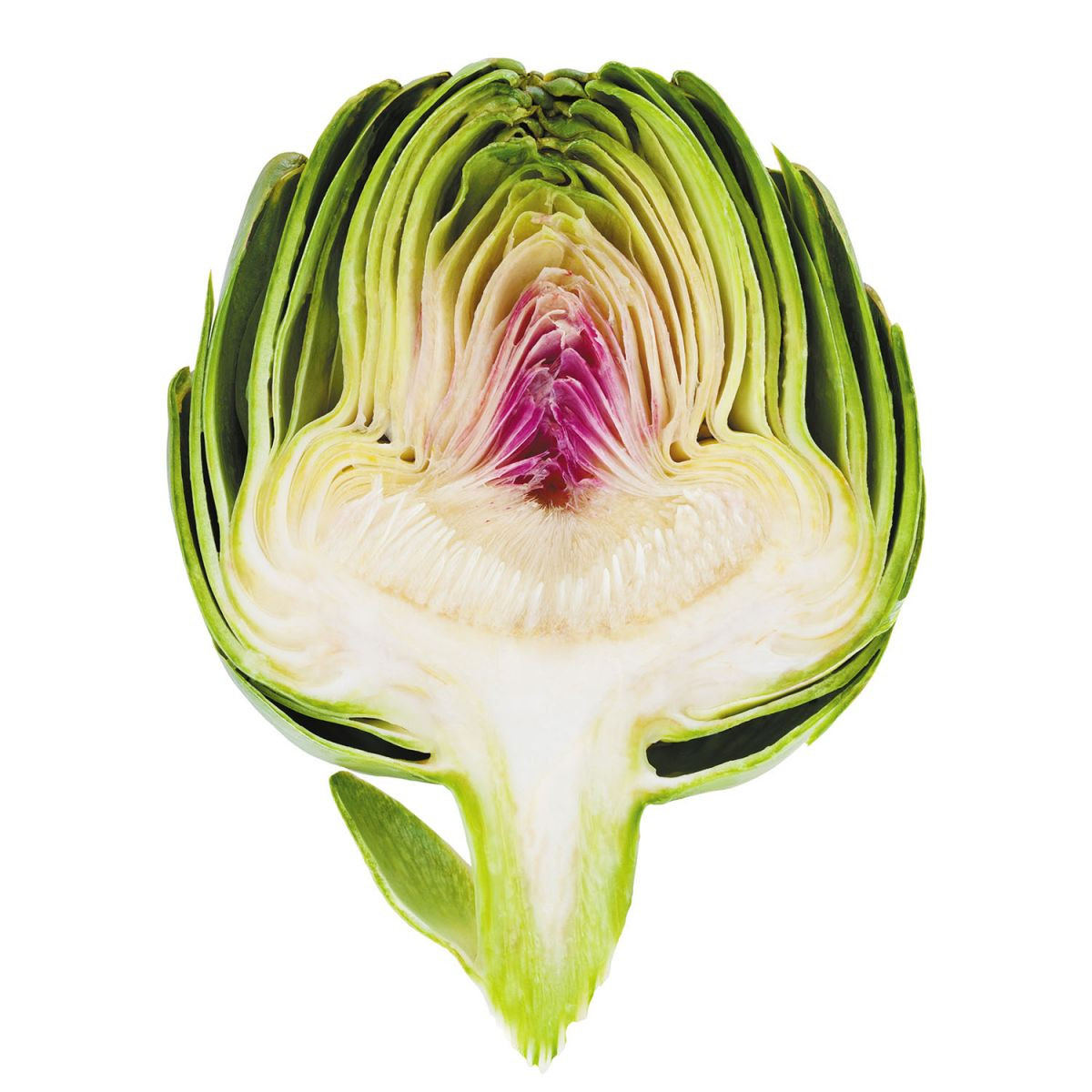Vegetable of the month: Artichokes

Image: © Thinkstock
As some artichoke aficionados know, anything you eat or drink right after eating this unique vegetable tastes sweeter than usual. Artichokes contain chlorogenic acid and cynarin, which partially inhibit the sweet receptors on your tongue. Whatever you eat or drink right afterwards washes off the compounds, fooling your brain into perceiving sweetness that isn't actually there. Try serving an artichoke alongside another vegetable you find less palatable, and alternate bites!
Cynarin also seems to increase the liver's production of bile, which helps remove cholesterol from the body.
Nutritional info: A medium artichoke contains just 60 calories and 7 grams of fiber. They're also a good source of magnesium and potassium — minerals that help lower blood pressure.
Easy recipe: Cut off the bottom of the stem and snip off the tips of the outer leaves with scissors to remove thorns. Place on a rack in a saucepan above a few inches of boiling water. Cover and steam until a leaf near the center pulls out easily (about 30 to 45 minutes).
To eat, remove each leaf, holding the pointed end, and put the other end in your mouth, scraping your teeth the length of the leaf. Use a teaspoon to scrape away the fuzzy, inedible part beneath the leaves to expose the artichoke heart, which you can then cut into bite-sized pieces to eat.
Disclaimer:
As a service to our readers, Harvard Health Publishing provides access to our library of archived content. Please note the date of last review or update on all articles.
No content on this site, regardless of date, should ever be used as a substitute for direct medical advice from your doctor or other qualified clinician.















